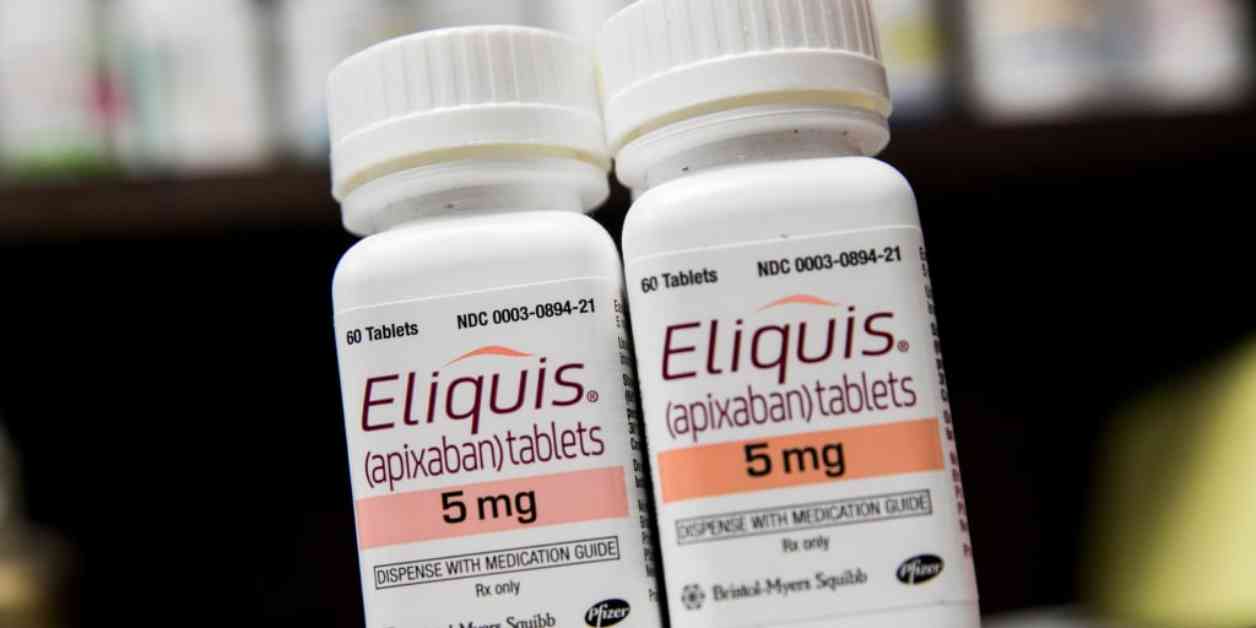The Biden administration announced a groundbreaking agreement with drugmakers to lower prices on the top 10 costliest prescription drugs under Medicare. This move marks the federal government’s first-ever drug pricing negotiations and aims to alleviate the financial burden faced by many older adults in the U.S. who struggle to afford their medications.
Negotiations between the federal government and drugmakers have been ongoing for months, resulting in expected price reductions on medications such as the blood thinner Eliquis from Bristol Myers Squibb, Imbruvica, a blood cancer treatment from AbbVie and Johnson & Johnson, and NovoLog, a diabetes medication from Novo Nordisk. While the lower prices won’t take effect until 2026, the impact on Medicare beneficiaries is anticipated to be significant.
According to White House domestic policy adviser Neera Tanden, this agreement represents a historic moment for Medicare. She emphasized that millions of seniors and individuals on Medicare will soon benefit from reduced drug costs for common and expensive medications used to treat various conditions like heart disease, cancer, diabetes, and more.
The projected savings from the negotiated prices are substantial, with Medicare enrollees expected to save $1.5 billion in out-of-pocket costs in the first year alone. These negotiations are part of the Inflation Reduction Act, which also includes provisions like a $35 monthly cap on insulin costs and an annual cap on out-of-pocket prescription drug expenses. Overall, officials estimate that Medicare could save $6 billion in the first year as a result of these measures.
Health and Human Services Secretary Xavier Becerra described the negotiations as intense but ultimately successful. He commended the collaborative efforts between the government and drugmakers in reaching a favorable agreement that will benefit Medicare beneficiaries. Becerra highlighted the importance of both sides coming together to achieve a positive outcome for all parties involved.
The Pharmaceutical Research and Manufacturers of America, the drug industry’s trade group, expressed concerns about the negotiations, suggesting that patients may not necessarily see lower out-of-pocket costs despite the agreement. However, the Biden administration remains committed to leveraging these negotiations to deliver tangible savings to Medicare beneficiaries.
The negotiations are a significant step towards addressing the high cost of prescription drugs in the U.S. A study published in JAMA revealed that more than half of older adults are very concerned about the costs of medical care and prescription drugs. With nearly 9 in 10 adults aged 65 and older taking at least one prescription drug, the affordability of medications is a pressing issue for many Americans.
The selected drugs subject to negotiation accounted for a substantial portion of Medicare Part D spending, highlighting the importance of addressing pricing concerns in the pharmaceutical industry. The anticipated savings from the negotiated prices are expected to provide much-needed relief to Medicare enrollees, particularly those facing high out-of-pocket expenses for essential medications.
Subheadings:
Impact of Negotiated Prices on Medicare Beneficiaries
The agreement between the federal government and drugmakers to lower prices on the top 10 costliest prescription drugs under Medicare is poised to have a significant impact on beneficiaries. With millions of seniors and individuals on Medicare expected to benefit from reduced drug costs, the negotiations represent a critical step towards addressing affordability issues in healthcare.
Challenges in Prescription Drug Pricing
The high cost of prescription drugs has long been a concern for many Americans, particularly older adults who rely on medications to manage chronic conditions. The negotiations between the federal government and drugmakers signal a proactive approach to addressing pricing challenges and ensuring that Medicare beneficiaries have access to affordable medications.
The Future of Drug Pricing Negotiations
As the negotiated prices for the top 10 costliest medications under Medicare are set to take effect in 2026, the focus shifts towards the future of drug pricing negotiations. With plans to expand negotiations to include more medications in the coming years, there is potential for even greater savings for Medicare beneficiaries in the future.



























